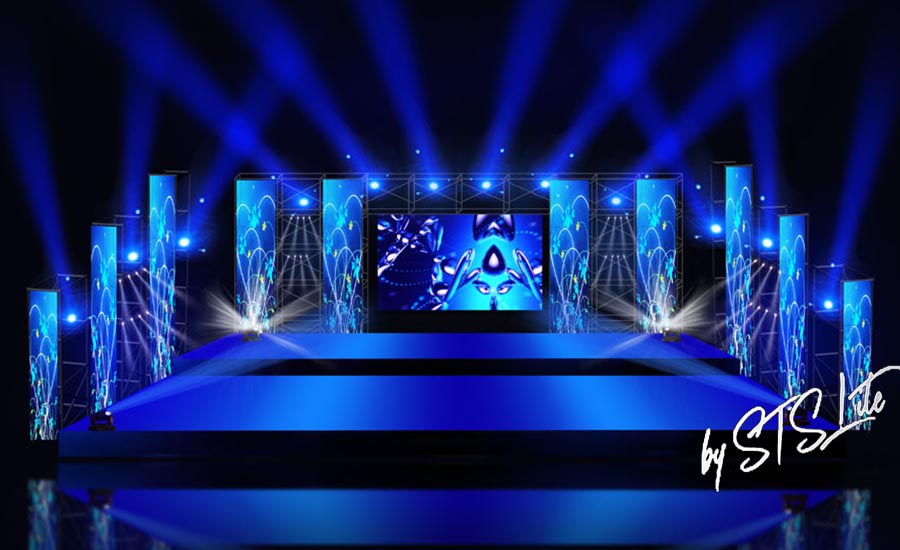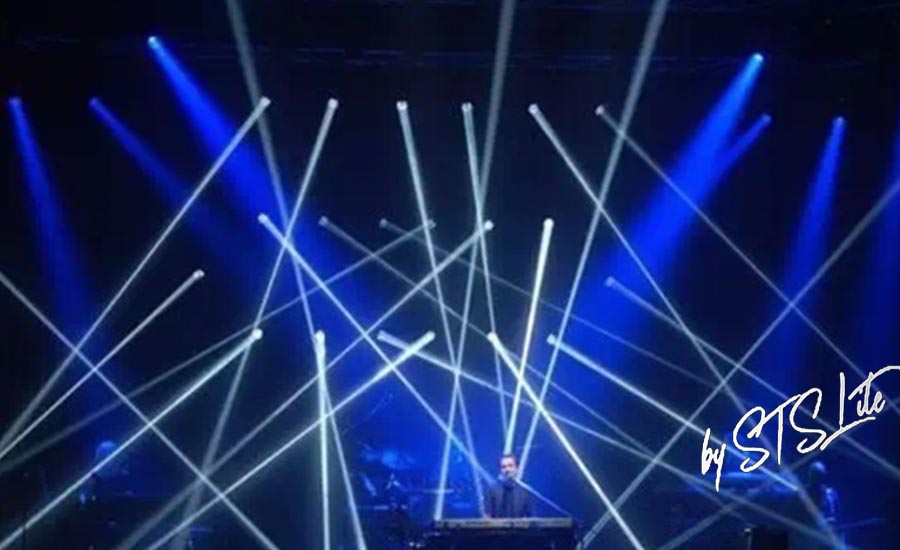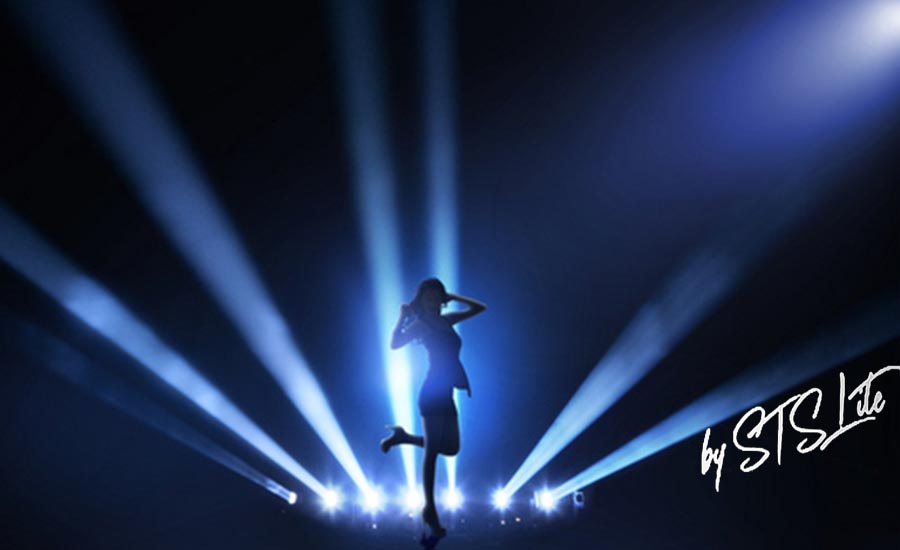The lighting application plays an increasingly important role in Museum exhibition design. With the development of science and technology, the types of lighting equipment are increasing, and the lighting and shadow modeling is also colorful. The combination of lighting and design, the artistic effect expressed can resonate with the psychology of the audience, so that they can enjoy the visual feast. The rational use of lighting equipment can not only play a simple lighting role, but also better protect cultural relics, create an overall space atmosphere, and improve the exhibition effect. This paper mainly analyzes the specific application of the lighting design in exhibition space, further discusses the effect of lighting, and better assists the perfect exhibition of cultural relics.

1、 The source of light
Only when nature is the most direct gift to human beings, can there be light to grow and evolve all things in the world. "Work on the rise and fall day by day". ① it shows the ancient people's dependence on natural light. The time and law of light source determine people's life mode. The excavation of fire not only represents the beginning of human civilization, but also the appearance of artificial light. After learning to use, the human life style has undergone qualitative changes. On the one hand, the fire can be used to improve the food materials; On the other hand, it can be used to light at night and resist the beast. In terms of artistic expression, people use the fire to burn out and leave ashes on the wall for artistic creation, depict the world in their eyes, depict the shadow cast by the fire light at night, and show the appreciation of the beauty of light and shadow art by the ancient people.
The change of industrial revolution in 19th century promoted the rapid development of science and technology and economy in western countries. During this period, artificial lights were also produced. The wide application of electric lights made the night bright, and the night life style was greatly improved. With the change of the times, the types of electric lights are more and more, and its application range is full of every detail in life, and has become an indispensable part of people's life. Most of the space we live in is indoor, work, study, entertainment, etc. indoor activities require lighting. Different space needs, lighting equipment is different. Reasonable use of light not only helps people to complete their work better, but also helps people develop physically and mentally and improve their quality of life.
In the museum exhibition space, different light sources are needed to display cultural relics. Cultural relics exhibition design is a kind of visual art which combines space design with exhibits and plane design content, and forms a visual art, which needs perfect visual effect. This kind of big environment effect cannot be separated from the use of lighting design. All kinds of lighting can be combined to render the atmosphere between the space, create the space artistic conception and show the theme effect of the exhibition, Give the audience a deep experience of watching the exhibition.

2、 The use of light and shadow in exhibition space
(1) Light and shadow modeling forms
In Museum exhibition space, due to the particularity of cultural relics, natural light is not directly used for lighting. In the closed exhibition hall, various types of equipment are needed to match each other to ensure the viewing effect of the exhibition. Taking the exhibition design of Tianjin Museum as an example, the interior lighting of the exhibition hall is generally divided into point type centralized lighting, linear arrangement lighting and surface lighting box lighting. The point lighting mainly focuses on the important cultural relics exhibits or unit instruction plates by using the spotlight, which makes it have a visual feeling of "close-up" and can attract the attention of the audience; The linear lighting uses the combination of row of spotlights to form a dynamic and tension space effect, which can guide the direction of exhibition space; Surface lighting is generally used in light box or theme wall area, rendering a large range of space, which makes the audience understand the overall artistic conception more clearly.
(2) The application of light and shadow modeling in Museum exhibition space
The function of lighting is very strict in Museum exhibition design. On the basis of ordinary lighting, we should pay attention to the influence of light irradiation on the safety of cultural relics. Some cultural relics in the exhibition hall, especially ancient lacquer ware, calligraphy and painting, textiles, pottery pots, etc., will fade seriously under the strong light for a long time. Therefore, the light in the exhibition cabinet will generally choose weak light source, and then match with the lighting in the exhibition hall to create a good viewing atmosphere. On the basis of ensuring the safety of cultural relics exhibition, we should also consider the influence of light on the audience. In the exhibition hall, people's feeling of environment light and color is to image in the retina according to the light rendered and then transmitted to the brain. Therefore, different light and shadow shapes in the environment will directly affect the audience's cognition of cultural relics. During each exhibition, relevant staff will adjust the lights according to the contents and environmental effects of the exhibits, so as to show the most authentic cultural relics effect.
The knowledge connotation expressed by cultural relics is the soul of the exhibition theme. The use of light and shadow is like the pulse of exhibition design, and the pulse expresses the life of space environment. The psychological feeling of the audience will change with the change of light and shadow in the exhibition hall. In the overall space, the success of the use of light and shadow modeling depends not only on the basic function of lighting, but also the psychological needs of the audience and the performance effect of cultural relics. Light and shadow modeling art is like an experienced tutor in the exhibition hall. With its unique molding method, the whole space is more infectious. Through the re shaping of space, it reflects the multi-level feeling, which makes the audience feel progressive mentally. The highlight of the special cultural relics and the delicate treatment of details in the exhibition hall will attract the audience to the highlight of the exhibition. The changes of the light and shade will also make the audience have unexpected moving, and the overall space will make people feel relaxed and comfortable.

3、 The development prospect of light and shadow art in exhibition design
With the development of the times and the development of science and technology, the design of exhibition space is becoming more and more diversified and scientific. At the same time, people's spiritual and cultural needs are improved, and they are no longer satisfied with the single and traditional light and shadow exhibition mode. This requires us to work in related professional staff to add more light and shadow elements to exhibition design. For example, Pompeii: instant and eternity, sponsored by Tianjin Museum, many scenes are matched with new lighting equipment and sound effects. One scene is to reproduce the scene of Vesuvius volcano eruption with dynamic light and shadow effect in a semi closed space. The hot magma is rushing to the audience under the 3D light and shadow technology, It makes the audience feel the helplessness and fear when the natural disaster comes, and more effectively understand the history of Pompeii city, and have a deeper impression on the viewing. In the future development, the combination of the virtual use of light and shadow art and the physical objects of the exhibits will be paid more and more attention to, and will play a crucial role in the exhibition design. The dazzling technique of light and shadow modeling will greatly improve the aesthetic feeling of the audience and better express the theme effect.
4、 Summary
Light and shadow originally meant to bring light in the dark, and has experienced a long-term development and evolution, and has developed from the original lighting use to decorative space and rich environment. The use of light and shadow combined with space color, material and other media can enrich the overall spatial effect, and play a route guiding role in exhibition space. In the light and shadow application design, we should fully consider the specific environment of the exhibition hall, examine its scientific and rational application, and avoid the visual stimulation and energy waste caused by improper use. With the increase of various lighting equipment, Museum exhibition design can better show the humanization, individuality and diversity of design style of light and shadow modeling, enrich and enrich the theme of exhibition, express the artistic conception of exhibition, highlight the cultural connotation of cultural relics and exhibits, and perfectly display the cultural information and communication content in the exhibition in front of the public, Create a good visual effect.
Copyright © 2021 GuangZhou STS Lighting Equipment Co.,Ltd. | All Rights Reserved